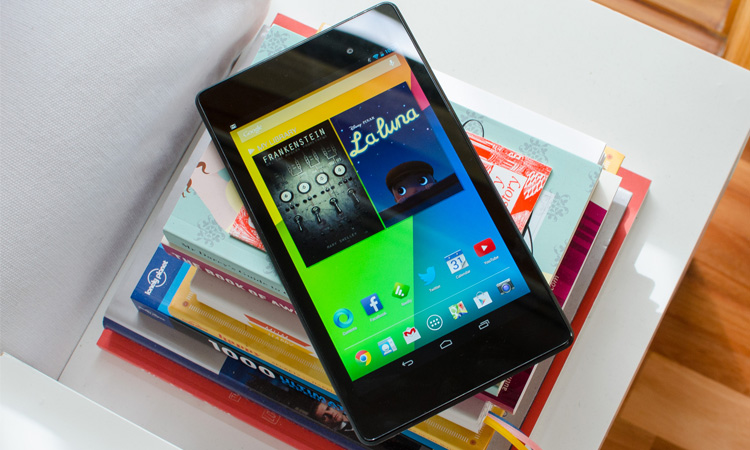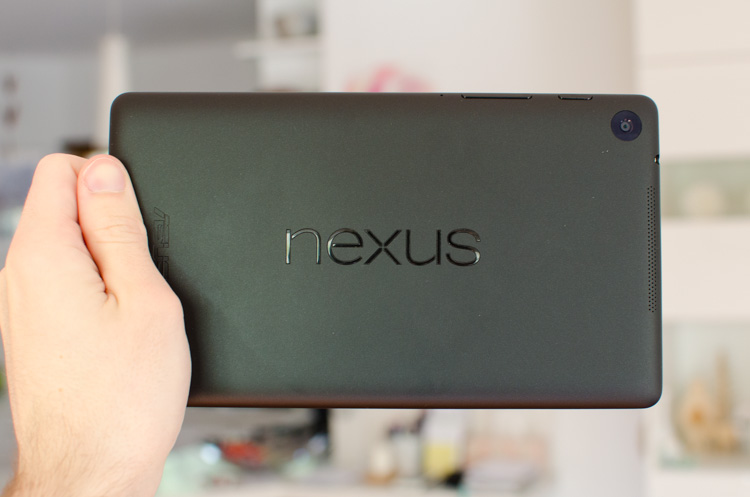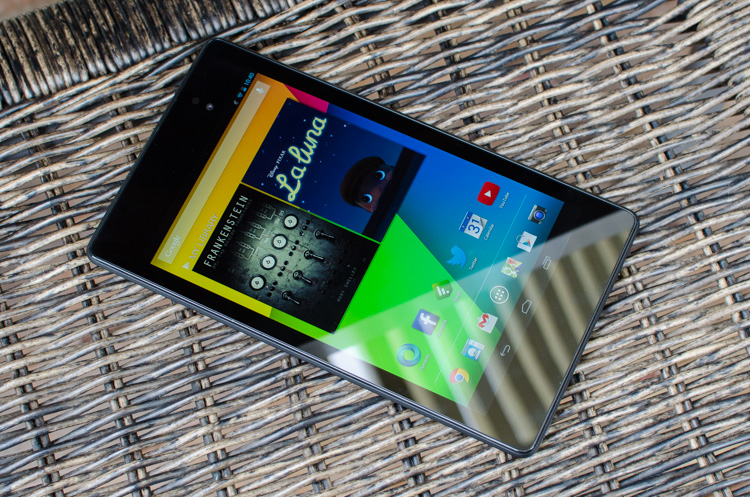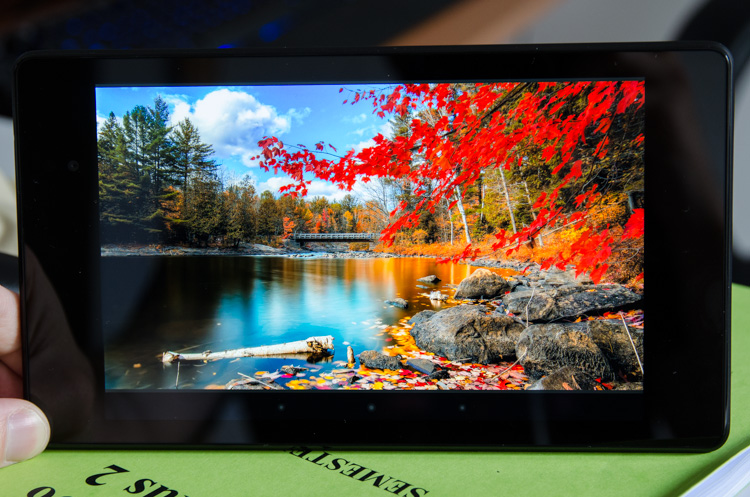Google stormed into the tablet market last year with the Nexus 7, a low-cost but high quality 7-inch tablet that significantly lowered the price barrier for Android media consumption. Despite the iPad mini launching just a few months later, the Nexus 7 sold extremely well, leading it to be the most prolific Android tablet, and seriously pushing other OEMs to produce quality devices for a low cost.
Google Nexus 7 (2013) - $220-$410
- 7" 1920 x 1200 IPS LCD display (323 ppi)
- Qualcomm Snapdragon S4 Pro SoC
- 1.5 GHz quad-core CPU, Adreno 320 GPU, 2 GB RAM
- 16 GB / 32 GB internal storage
- 5 MP rear camera, f/2.4 lens, 1080p video
- 3950 mAh, 15 Wh battery
- Wi-Fi a/b/g/n, Bluetooth 4.0, NFC
- Android 4.3 'Jelly Bean'
- 290 grams, 8.65mm thick
Enter 2013, and it's time to refresh the Nexus 7 with a new model and new specifications. Asus is still producing the device, it's received a serious speed boost, a better quality display, a rear camera and new features. Yes, it costs $20 more than last year's model, but at $220 it still presents itself as a remarkably attractive proposition for people who want to read, watch or play.
The first Nexus 7 established itself as a cheap yet quality device, so will the Nexus 7 keep the bar raised to its lofty standards? Does the 2nd-gen 2013 model present enough value to warrant an upgrade over the original?
The Nexus 7 tablet used in this review was kindly provided by Negri Electronics. No matter where you are in the world (including Australia), Negri will provide you unlocked smartphones and tablets first and for the lowest prices.
Design
When I first held the original Nexus 7, I felt it was a little chubby. At 10mm thick and over 300 grams, it just didn't appear to me as a premium slate. The first-gen Nexus 7 had a decent amount of bezel around its display, too. Of course, for the price you still got a lot in this device but these were among the most obvious design trade-offs to keep the cost below $200.
With the 2013 Nexus 7 my opinion has completely changed. The device is wonderfully constructed, and gives no indication of its affordability. It's thin, it's comfortable, it's light, and there's a perfect amount of bezel around the display. Furthermore, the combination of tough scratch-resistant glass and soft-touch plastic makes the Nexus 7 physically feel really nice when you're holding it, but equally tough: there's no flex in the build at all.
The front of the tablet is essentially the same as every other 7-inch device on the market. The display takes up the majority of the panel, and there's a sizable bezel on the top and bottom to assist holding the device in landscape mode. One feature I really liked was the notification light below the display, glowing whenever you receive an email or Facebook message.
While I'm not generally a fan of significant branding on smartphones and tablets, the large Nexus logo on the back fits the tablet's design. Other than the logo you can find a 5-megapixel camera in the top corner surrounded by a large glass lens, as well as dual rear-facing speakers, which really enhances the sound quality while watching videos. Not enough devices of this size feature left and right speakers, and it's great to see Asus managing to squeeze this feature into the budget.
Around the edges you can find a microUSB port on the bottom of the tablet, a 3.5mm headphone jack on the top, and the volume rocker and power button on the right-hand side. The edges are reasonably curved, which makes the power button hard to press without lifting the Nexus off the surface it's resting on, but other than that, the buttons are easy to press and very solid.
For a 7-inch tablet the Nexus 7's design is very impressive. Asus has clearly implemented a no-compromise approach to designing the tablet for Google, even when working to the constraints of a limited price point. It doesn't stand out like the iPad mini's aluminium shell does, but it doesn't really need to, as the build is more than fit for the purpose.
Display
Perhaps the most astonishing aspect of the Nexus 7 is the display, which seems to defy the price tag associated with the device. Asus has gone for a significant upgrade in the display department, bumping it up to a 1920 x 1200, IPS LCD panel with a density of 323 ppi. The quality upgrade is noticeable, effectively giving the Nexus 7 a best-in-class display.
The high resolution and high pixel density of the Nexus 7's panel makes video watching, photo viewing and web browsing that much more enjoyable. You won't be able to ascertain individual pixels with your naked eye, and text looks extremely sharp without any visible jagged edges. It's also a blessing to have a 7-inch tablet that can display 1080p movies at native resolution, as you'll be getting the full clarity of Blu-ray playback without downscaling.
Image reproduction and color quality from the IPS panel is very good, competing well with other high-quality mobile panels I've seen recently, such as the one found on the Nokia Lumia 925 or Samsung Galaxy S4. Vibrant images look amazing on the display, and not far off what one would consider a 'true to life' image. The panel's color gamut is wide, contrast is very good, and white levels appear perfect with no color tinting to speak of, which all contribute to a fantastic image quality.
The panel produces a decent amount of light, which helps significantly when you're trying to use the Nexus 7 outdoors or in a bright environment. Coupled with reflection reduction technology, it's actually remarkably easy to read text on this tablet in all conditions, so you won't be crying out for the eInk display found on dedicated e-book readers. Auto-brightness also works well, adapting quickly and reasonably accurately to light changes, a feature often broken (or not even included) in budget tablets.
Google doesn't use any questionable marketing jargon to describe the Nexus 7's display, simply stating that it's the "sharpest 7" tablet screen ever". I have to agree: the screen is bright, crisp, and beautiful. The tablet pricing doesn't appear to have played a factor to Asus as they haven't compromised with the display, which is sure to make every single Nexus 7 buyer very happy.








